On Tuesday morning we left Queen Victoria and headed home. Poor Maureen was on her way to Winchester County Hospital to have her broken wrist sorted out. The drivers Ian and Gary arrived as we came out of the Terminal building and we were home by 10.00am.
And then the D – Day 75 activities began and that prompted me to think about the movements at sea during WW2 of my father, George E Smith. 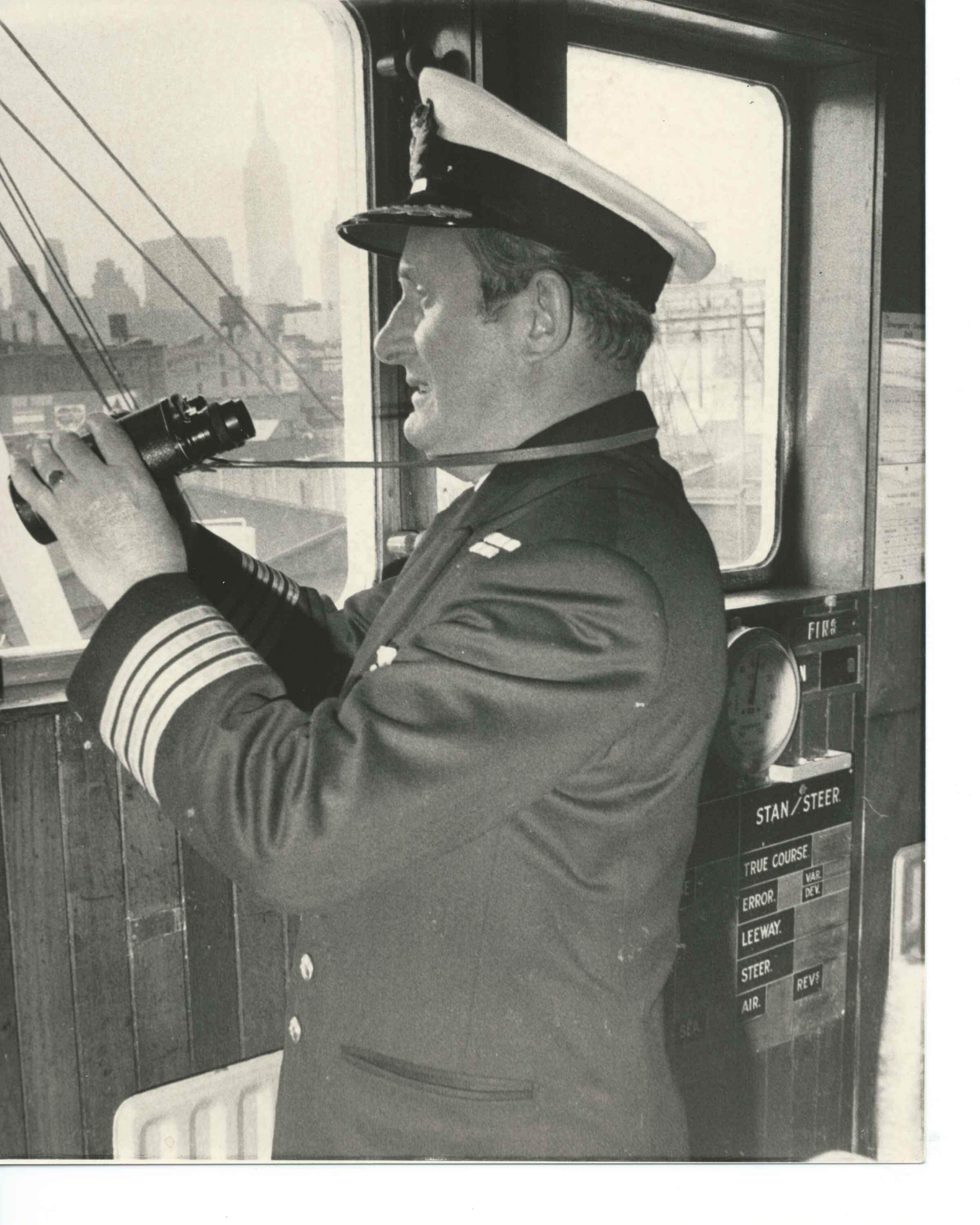 Like so many of his generation, father never talked about the war. Mother never knew where in the world he was during the war. If his ship came into a UK port he would telephone and sometimes they would be able to meet.
Like so many of his generation, father never talked about the war. Mother never knew where in the world he was during the war. If his ship came into a UK port he would telephone and sometimes they would be able to meet.
Father first went to sea in 1930 when he was 16. He joined the New Zealand Shipping Company as a cadet.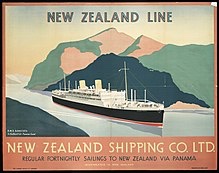
His apprenticeship was for 4 years. He used to say that he had been round the world 7 times before he was 21. His first ship was the TSS Northumberland. 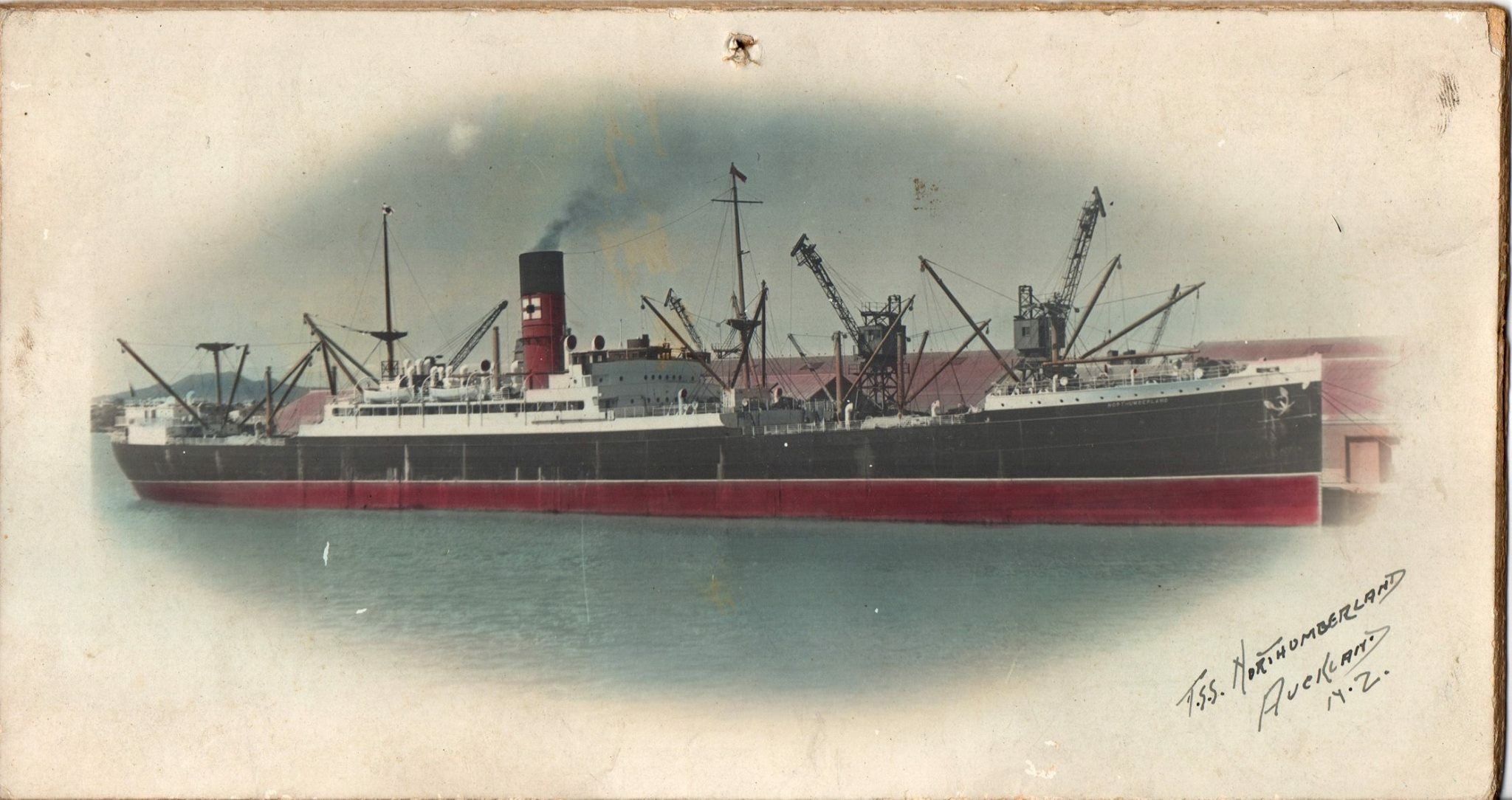 After gaining his Second Mates Certificate he joined the United Baltic Corporation and sailed on their ships SS Baltara and SS Balteako where he stayed until he had gained his Masters Certificate.
After gaining his Second Mates Certificate he joined the United Baltic Corporation and sailed on their ships SS Baltara and SS Balteako where he stayed until he had gained his Masters Certificate.
At that point he decided that he wanted to move to something bigger. He wrote to 8 Shipping companies. Cunard responded immediately asking him to attend an interview and more importantly sending him a rail ticket to get to the interview!
He joined Cunard on 18 June 1940 and 3 days later on 21 June 1940 he boarded RMS Franconia as 3rd Officer.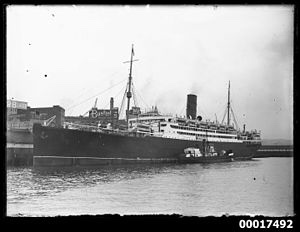
I have discovered that Franconia had been requisitioned as a troopship at the outbreak of the war in September 1939. On 16 June 1940, while en route to St Nazaire as part of Operation Ariel – the evacuation of the Second British Expeditionary Force from France – the Franconia was damaged by near misses from German bombs and was escorted back to Liverpool
Father must have joined her when she arrived in Liverpool. Later in the war she took part in landings at Madagascar in May 1942, Operation Torch in North Africa 8-16 November 1942. During his time aboard Franconia, father was promoted to Junior Second Officer and then Senior Second Officer before moving to RMS Ascania as First Officer.
Interestingly in 1945 the Franconia was used as a headquarters ship for Winston Churchill and the British delegation at the Yalta Conference.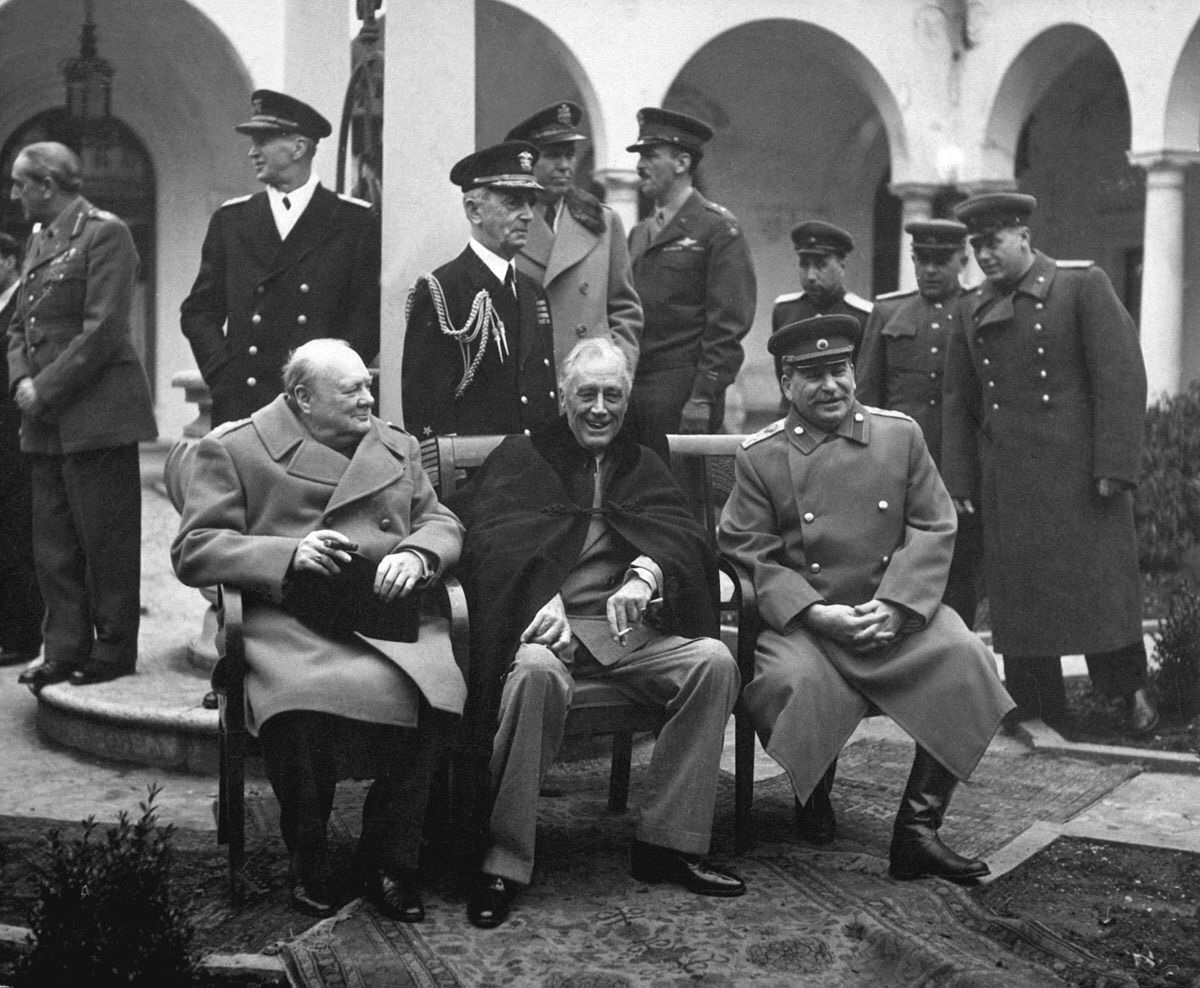
RMS Ascania was built in Newcastle and was completed in May 1925. 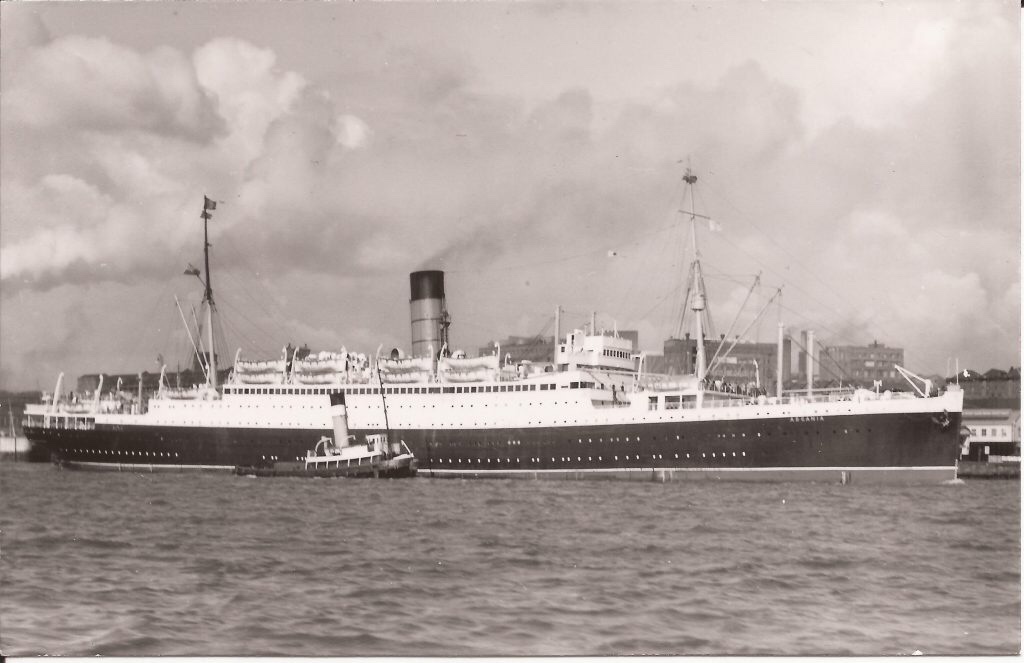 Before the war she was employed on the London/Southampton – Quebec- Montreal route, switching to Halifax and New York in the winter. In August 1939 she was converted into an Armed Merchant Cruiser. After spells on convoy protection she returned to the UK and was converted into a Landing Ship – Infantry.
Before the war she was employed on the London/Southampton – Quebec- Montreal route, switching to Halifax and New York in the winter. In August 1939 she was converted into an Armed Merchant Cruiser. After spells on convoy protection she returned to the UK and was converted into a Landing Ship – Infantry.
Father joined her on 7 February 1943 and she took part in the Invasion of Sicily between 10 July and 17 August 1943, the Anzio Landings which began on 22 January 1944 and the landings in the South of France – Operation Dragoon – on 15 August 1944.
On 19 December 1944 Father joined Queen Mary 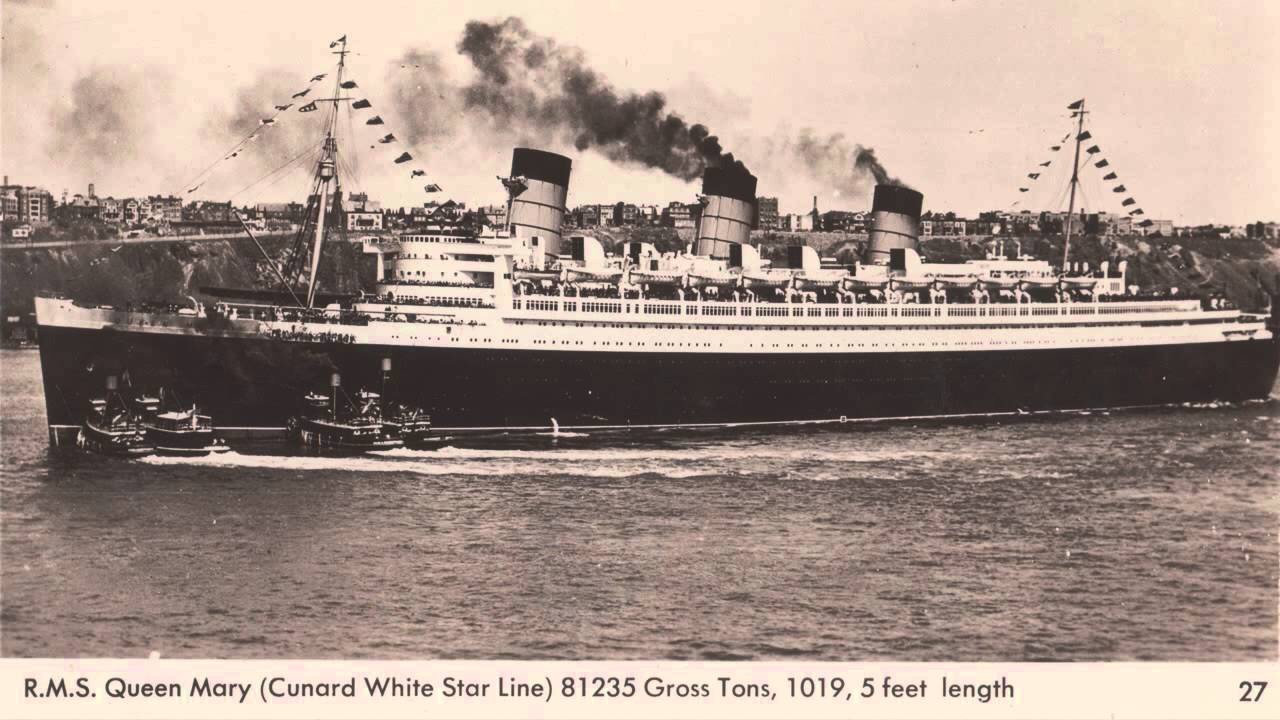 as Senior First Officer moving to the Queen Elizabeth soon after the war had ended.
as Senior First Officer moving to the Queen Elizabeth soon after the war had ended.
And to finish this piece and to bring us up to date, Jane’s brother Nigel was carrying out his formal duties in Portsmouth on Wednesday, welcoming the Queen to Hampshire, for the D Day 75th commemoration. He was caught by the cameras as he walked just behind President Trump.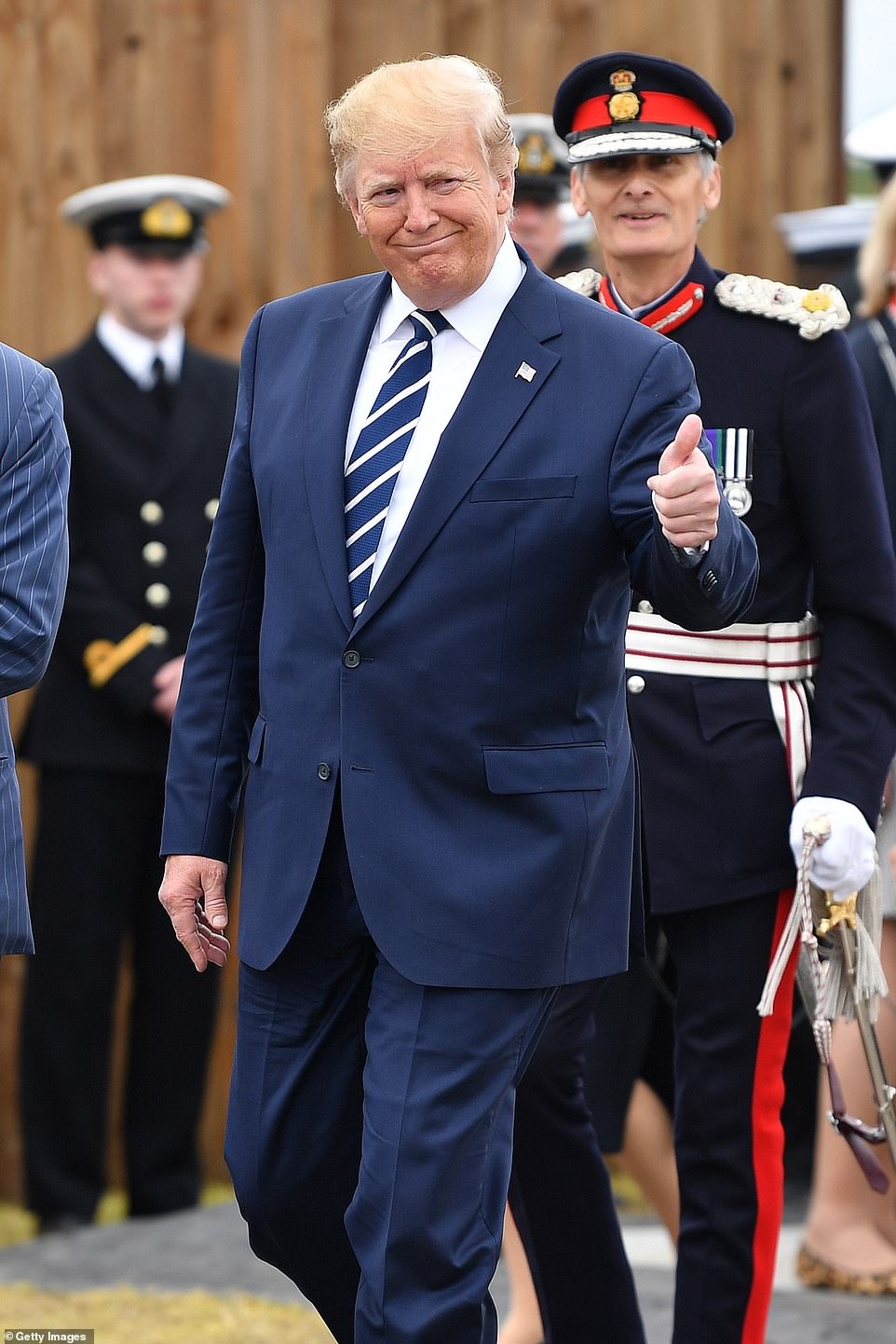
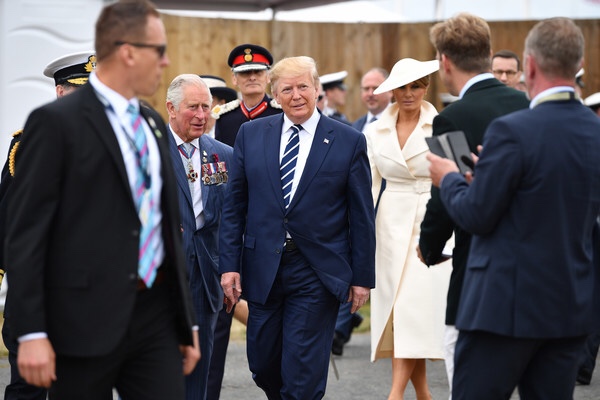

The D Day coverage was very moving Richard. We have much to thank those brave service men and women for all the did for our generation. Like your father my father rarely spoke about his war experiences. I do remember one story though. My father Walter was a Royal Marine. Woe betide you if you didn’t say ROYAL Marine! He spent most of the war training troops to fight on the front line. Towards the end of the war he was told, much to his chagrin, that he’d be going to lead his own troop. “No” says he to his commander. “I’m need here to train the new intake”. Despite his protestations off he goes to the River Rhine. On the first evening he overhears German voices on the otherwise of the river and orders his troop to ‘hit the ground’. When he looks up he’s the only one prostrate. “Get up” says one of his squad. “if we can hear them they can hear us and we don’t shoot at night”. Feeling rather foolish my father had and early lesson in the difference between learning by the manual and the real world. Wonderful brave folk. Thanks for this entry on your blog.
Great story Nigel. We watched all the D Day stuff, in between the unpacking, washing, ironing, grass cutting, cooking, cleaning – you know what it’s like for us chaps!